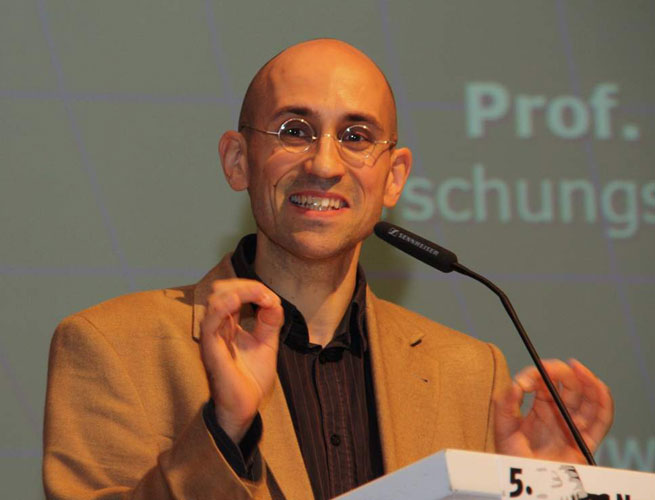Climate Revolution with Weaknesses
With a real bang, the German Federal Constitutional Court has adjudicated what is probably the most far-reaching decision ever made by a supreme court worldwide on climate protection.
German lawmakers must make the post-2030 climate targets enshrined in the German Climate Protection Act much more specific. And they must distribute the remaining greenhouse gas budget fairly between generations. The latter will force much more ambitious climate targets – and above all more ambitious instruments – even before 2030.

For the first time, a constitutional complaint for more environmental protection was successful in Germany. The court’s decision was made on four constitutional complaints. The first was filed in 2018 by individual plaintiffs such as actor Hannes Jaenicke, energy researcher Volker Quaschning, and ex-member of parliament Josef Göppel, together with the Solar Energy Support Association Germany (SFV) and Friends of the Earth Germany (BUND), represented by attorney Franziska Heß and me. The SFV had prepared the complaint by commissioning legal opinions to me since 2010 (which were based on my habilitation thesis from originally 2002, now from 2019). In 2018, the constitutional complaint met with almost unanimous skepticism in politics, jurisprudence, and the media. When it was accepted for decision by the Constitutional Court in August 2019 – surprisingly for many – the picture changed. It was now followed in January 2020 by further constitutional complaints, including by activists from Fridays for Future and people from Bangladesh, supported by other environmental associations.
I. Constitutional Court and modern theory of human rights
The court follows in central points the first complaint represented by us. It thus changes its jurisprudence in essential respects, without, however, clearly admitting that. The decision shows:
1. Constitutional complaints for more environmental protection can be successful, and this without having to prove the (almost impossible) fact that every single existing climate protection regulation is ultimately unsuitable.
2. There is a fundamental right to climate protection. In this context, fundamental rights also protect intertemporal and transnational freedom and its elementary preconditions, not only freedom here and now (paras. 175 and 182 ff.). This is a milestone for law.
3. There is a fundamental right to the ecological minimum subsistence level.
4. Human rights apply even if, as in the case of climate change, very many people are affected (para. 110). This is also a break with the previous logic of German law.
5. The precautionary principle is finally applied to fundamental rights (marginal no. 129 ff.). Thus, it is not solely a matter of whether the complainant has already been violated here and now; cumulative, uncertain and long-term impairments of fundamental rights are also conceivable. This is convincing because the fundamental rights would otherwise run empty in the case of imminent irreversible damage. This is exactly what the Constitutional Court recognizes.
6. Climate protection is about freedom rights as a whole (para. 127), in two respects: both climate change and climate protection are relevant to freedom. For the “protection of freedom from climate change” aspect, we had offered the court both an argumentation on the right to the elementary preconditions of freedom – life, health and subsistence – and an argumentation on freedom as a whole in connection with the state objective of environmental protection (Article 20a of the Basic Law). In its own diction, the court ultimately follows the second line, also mentioning the supporting character of the first line.
7. The fact that Article 2 of the Paris Agreement is ultimately on its way to becoming a constitutionally required minimum standard, with its obligation to limit global warming to 1.5 degrees, not just to well below 2 degrees, follows in parts from our argument that precisely the 1.5 degree limit is required (para. 235). The court correctly recognizes that the Paris Agreement no longer speaks of “two degrees” as the overall target – and that states must seek to comply with 1.5 degrees, as is clear from the wording of Article 2. Emissions neutrality thereby becomes a constitutional imperative.
8. Policy must be based on the current state of scientific knowledge. This means that the facts must be accurate, even if there are gaps in this respect (with which the court was often very lax in earlier decisions).
9. The court states: Present generations are interfering with the freedom rights of future generations by allowing themselves to cause too many greenhouse gas emissions by 2030: The Climate Protection Act improperly deferred reduction burdens to the future. The targets for the period after 2030, but ultimately also before 2030 because of the budget that has already been used up by then, must be significantly tightened up. This echoes in our own words our approach of the limits of balancing different spheres of freedom that the legislature must observe.
10. Parliament must make all major decisions itself. It has not done so by now. In this respect and with regard to the emission reduction paths, the legislature must make improvements by the end of 2022.
11. Climate protection cannot simply be achieved abroad or through risky geoengineering approaches and the like (para. 226 f.).
12. Each state must do its fair share (Guiding Principle 2c).
The fact that the entire German political community including members of government is jubilant about this judgment is both remarkable and grotesque: after all, the pleadings of government and parliament from the trial document that they massively rejected the lawsuit and by no means welcomed it.
Source
Prof. Dr. Dr. Felix Ekardt, LL.M., M.A. 2021 | Felix Ekardt is the head and founder of the Research Unit Sustainability and Climate Policy based in Leipzig and Berlin and a Professor of Public Law and Legal Philosophy at Rostock University.








